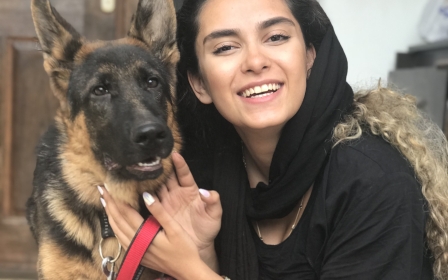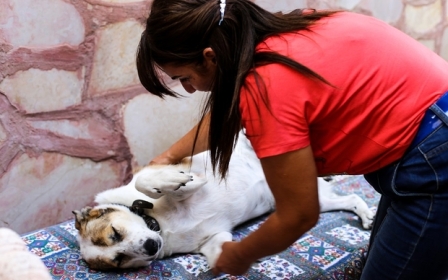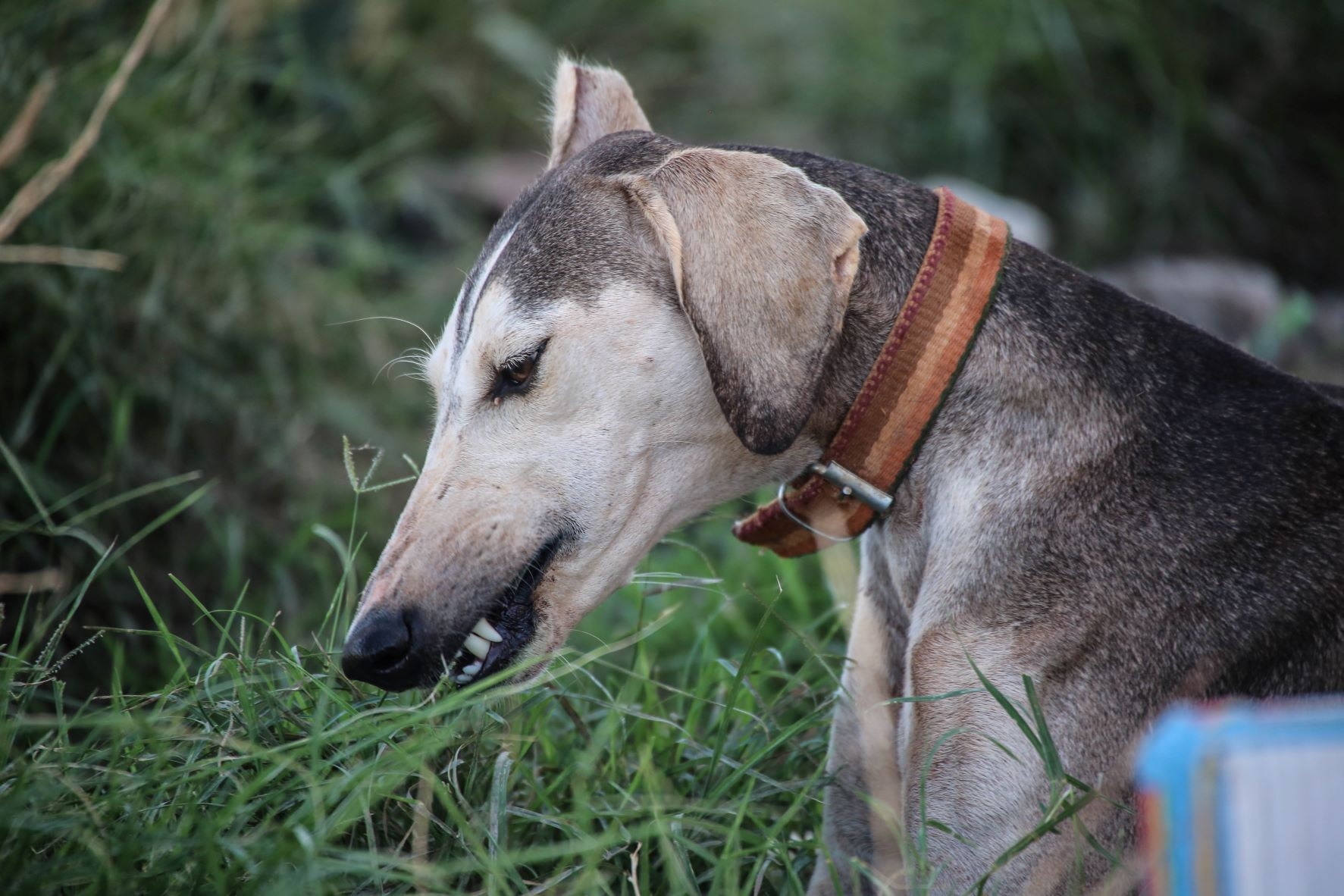
Meet Syria's 'loyal, affectionate and very intelligent' Saluki dogs
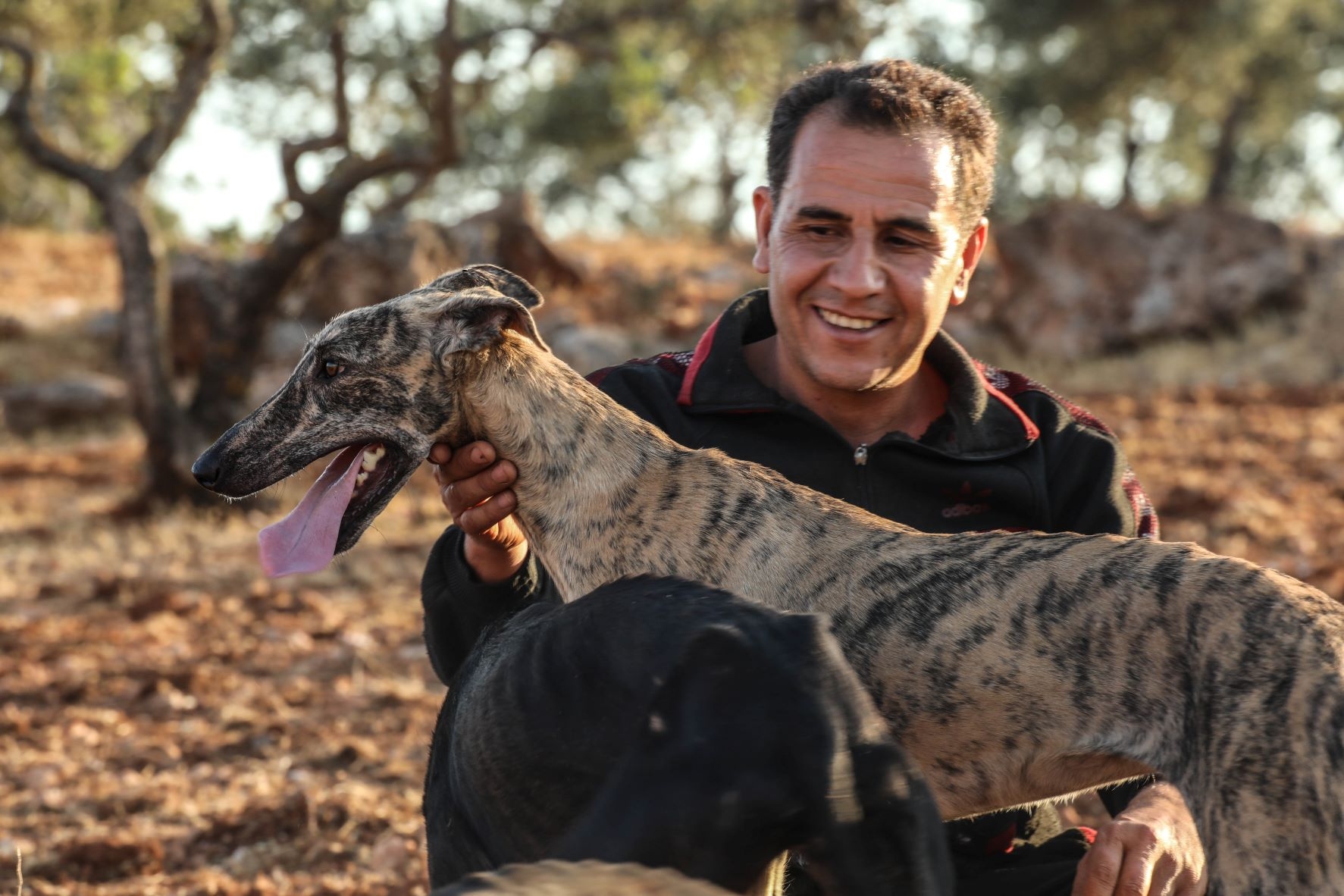
No one is quite sure where the name Saluki comes from but there is no shortage of theories. Some claim it's from the ancient city of Saluq in Yemen, while others say its from a town of the same name near the Caspian Sea. There are theories linking it to similar sounding places in Turkey and Syria, and one which says it comes from the name of the Seleucid Empire, which covered territory stretching from modern Turkey to Pakistan in the wake of Alexander's conquests. What is certain though, is that the Saluki is a breed closely associated with the Middle East and one considered to be a symbol of the Bedouin lifestyle. (MEE/Pictures by Izzeddin Kasim)
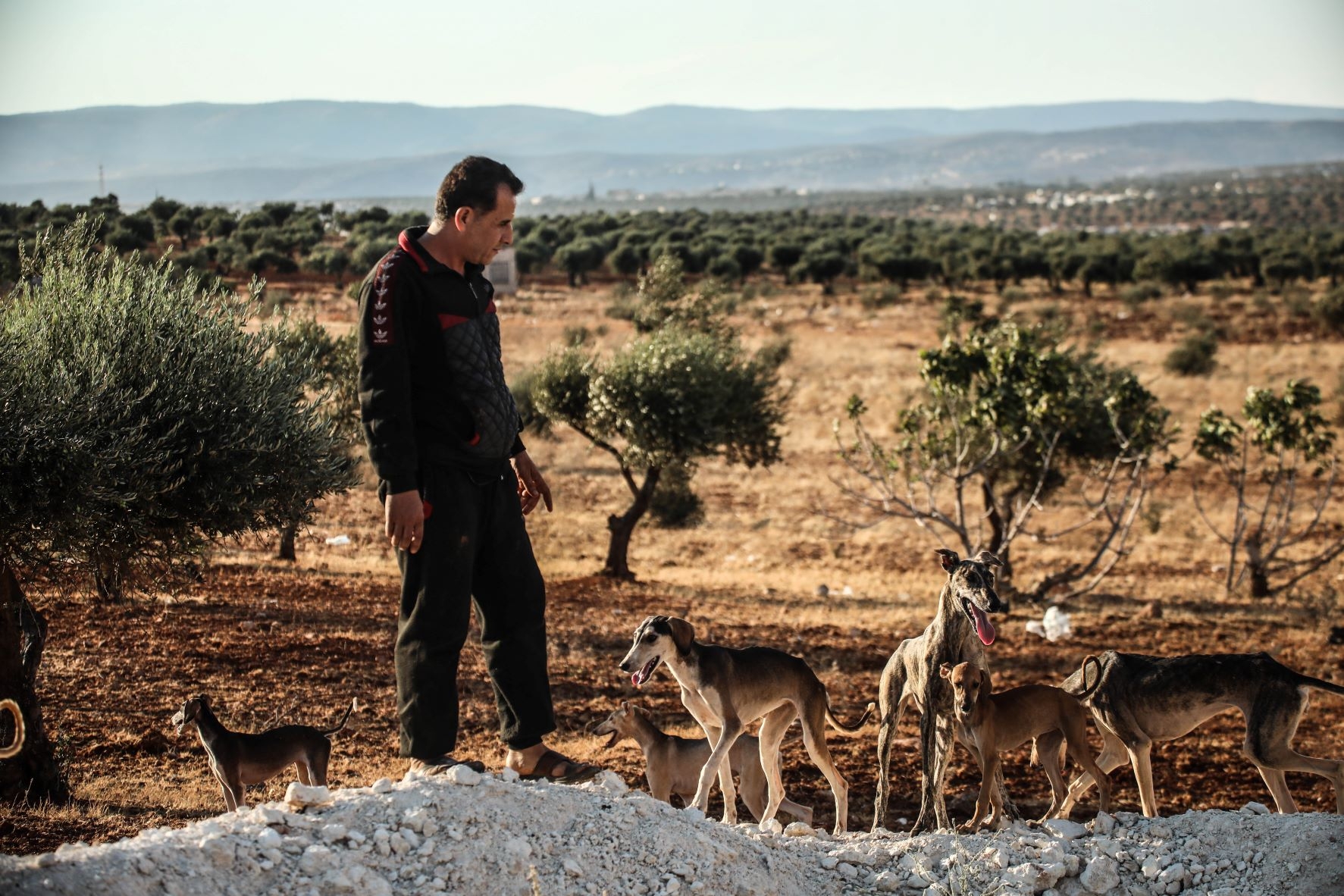
Osama al-Hammadi, who lives in Syria's rebel-held region of Idlib, has spent his entire life raising and training the dogs. Originally from the town of Kafr Rumah in northern Syria, Hammadi fled after a government artillery attack struck near one of his kennels. The attack killed a number of the animals and several more went missing but that did not break Hammadi's relationship with the animals. He continues to raise them despite being a displaced person.
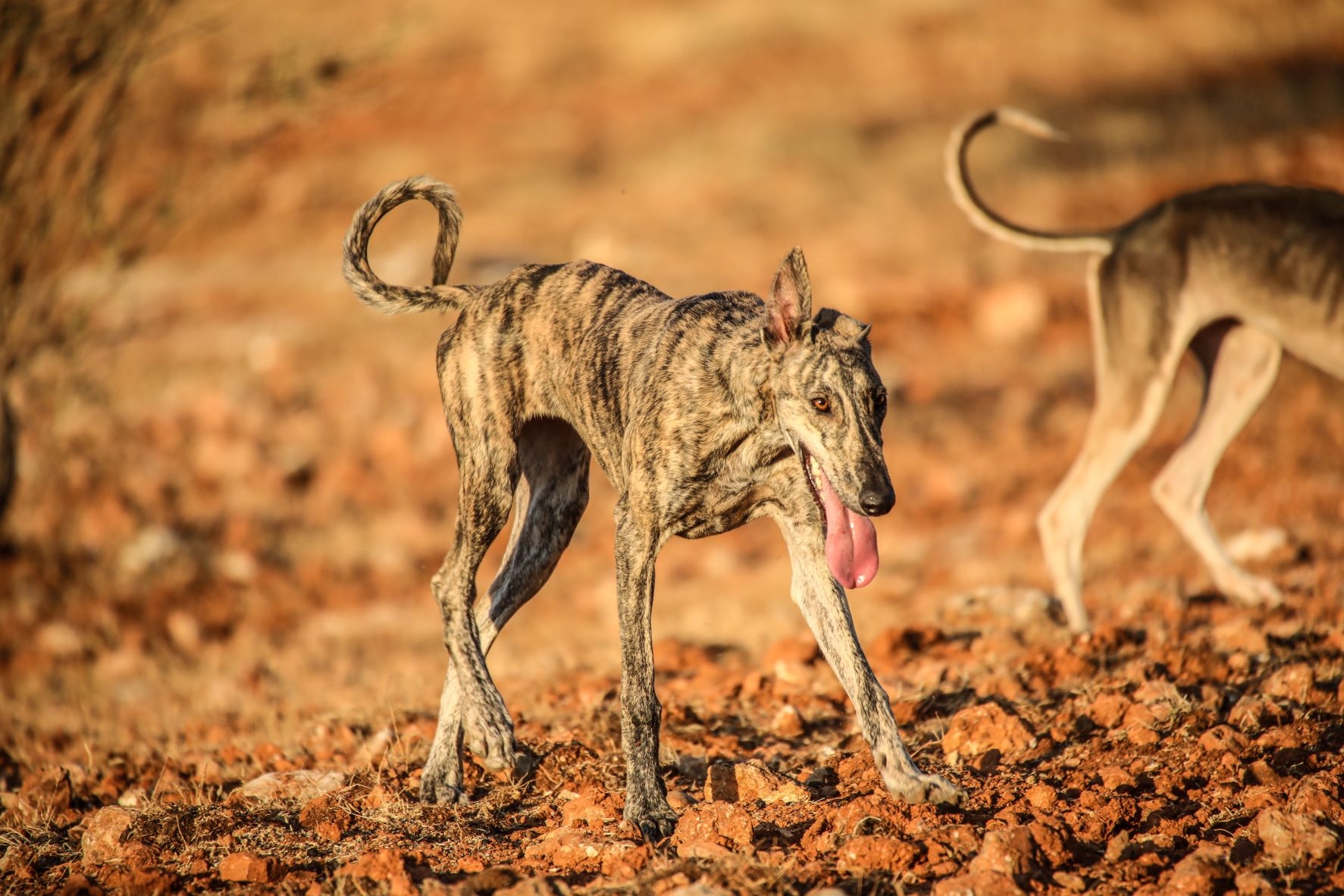
The Saluki possesses a strong prey drive, which combined with its fierce loyalty and speed makes it an ideal hunting companion for Bedouins. There are even narrations attributed to the Prophet Muhammad, where he specifically allows the consumption of game killed by the hounds. While some Islamic theologians place restrictions on keeping dogs as pets, there is a consensus allowing their use for hunting and protection. Hammadi says: "Puppies learn quickly, they can come back to you as soon as they hear their name, no matter how far away they are. I put wild rabbits to puppies and let them chase them in the open."
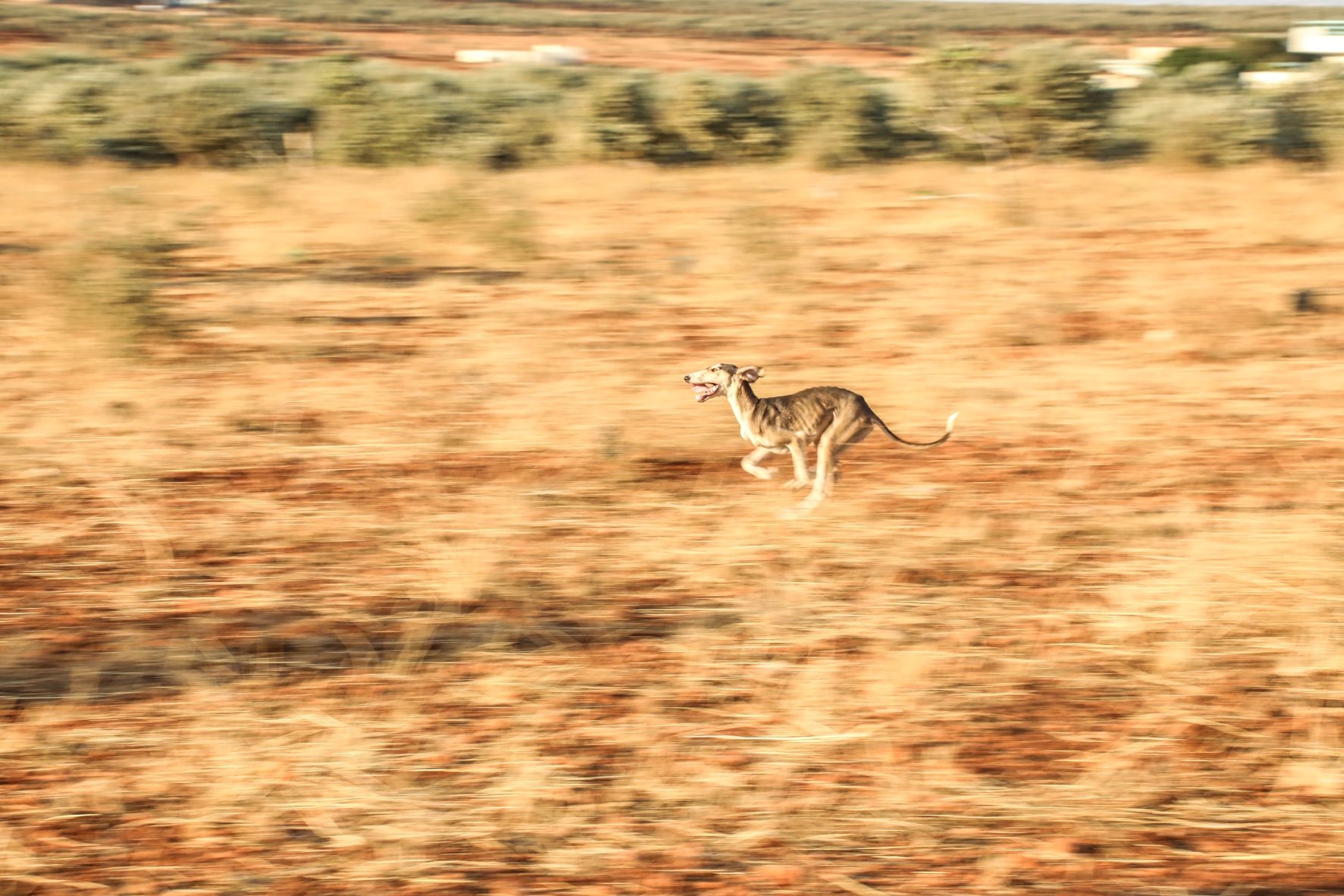
Moving at around 42 miles per hour, the Saluki is second only to the greyhound in terms of speed among dogs. Both breeds strongly resemble one another and have noticeably sleek bodies with long legs that allow them to glide through surfaces rapidly. Hammadi says that he makes his dogs exercise throughout the day until sunset. "It's daily training for them to make them run constantly in order to keep their body fit."

The Saluki also has the distinction of being one of the oldest known breeds of dog in the world, with dogs resembling the modern Saluki appearing in Egyptian hieroglyphs. The remains of the animals have been found in tombs in Upper Egypt.
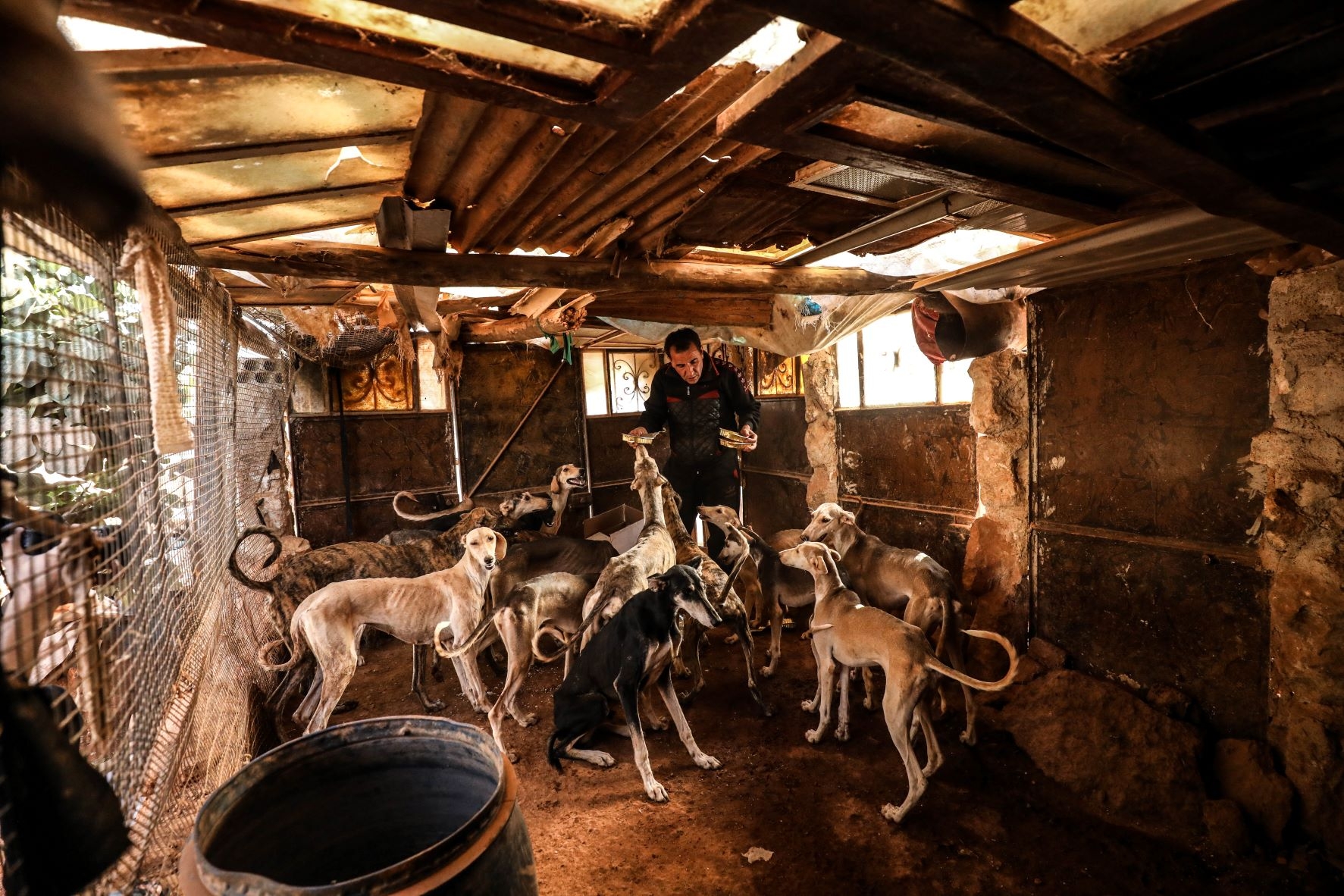
The dogs are believed to have been introduced to Europe during the Crusader period and are now bred across the world. Hammadi's dogs have diverse lineages but the most prized are the ones with proven Arabian pedigree. The war in Syria left him with just 25 dogs, whereas before the conflict he had as many as 80 at a time.
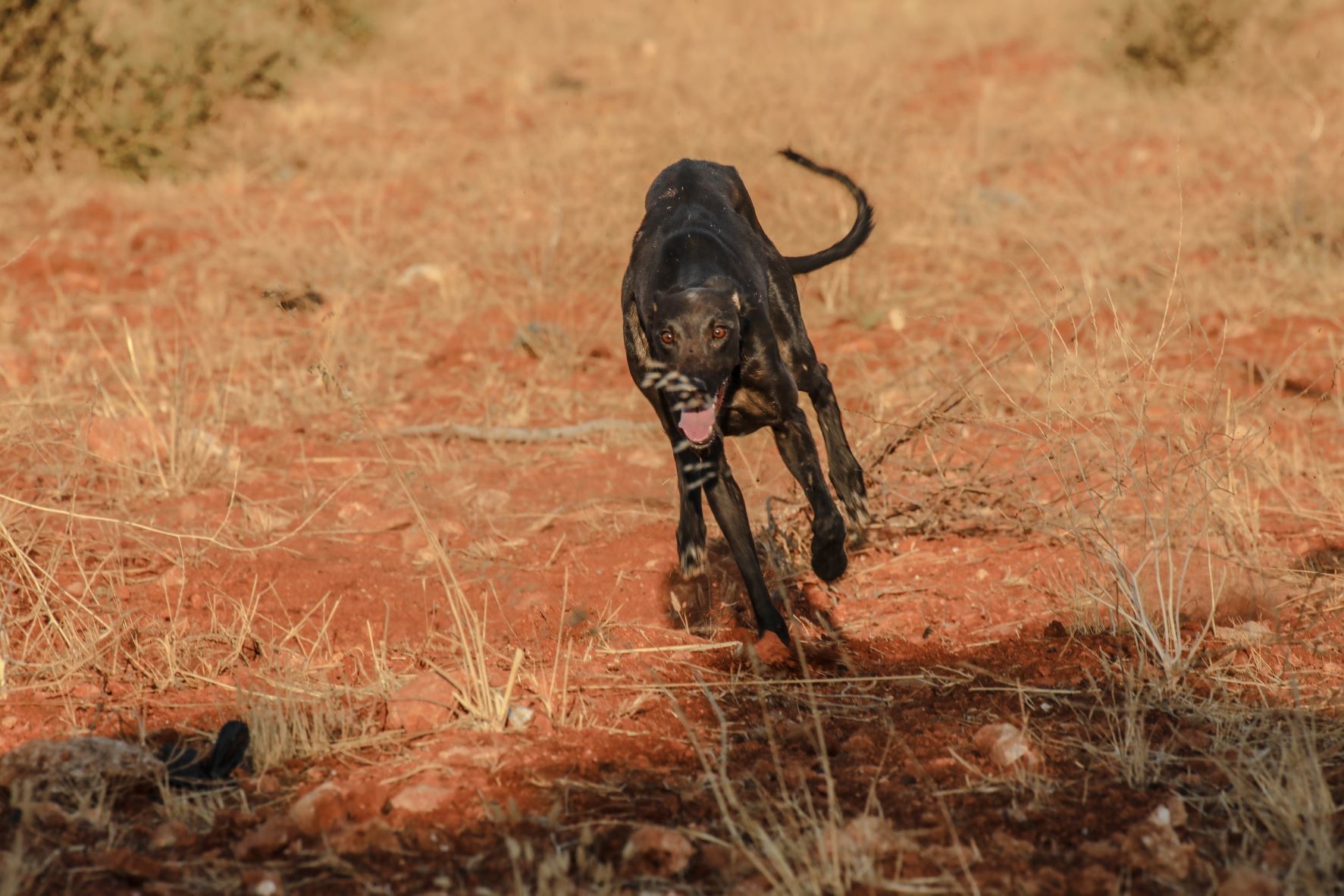
Before the war, Hammadi could sell a dog to customers living in Gulf states for between $2000 to $8,000 dollars but export restrictions and the impracticalities brought on by the conflict have made it much more difficult to make sales. He says raising the dogs is expensive and accessing medical care is difficult.
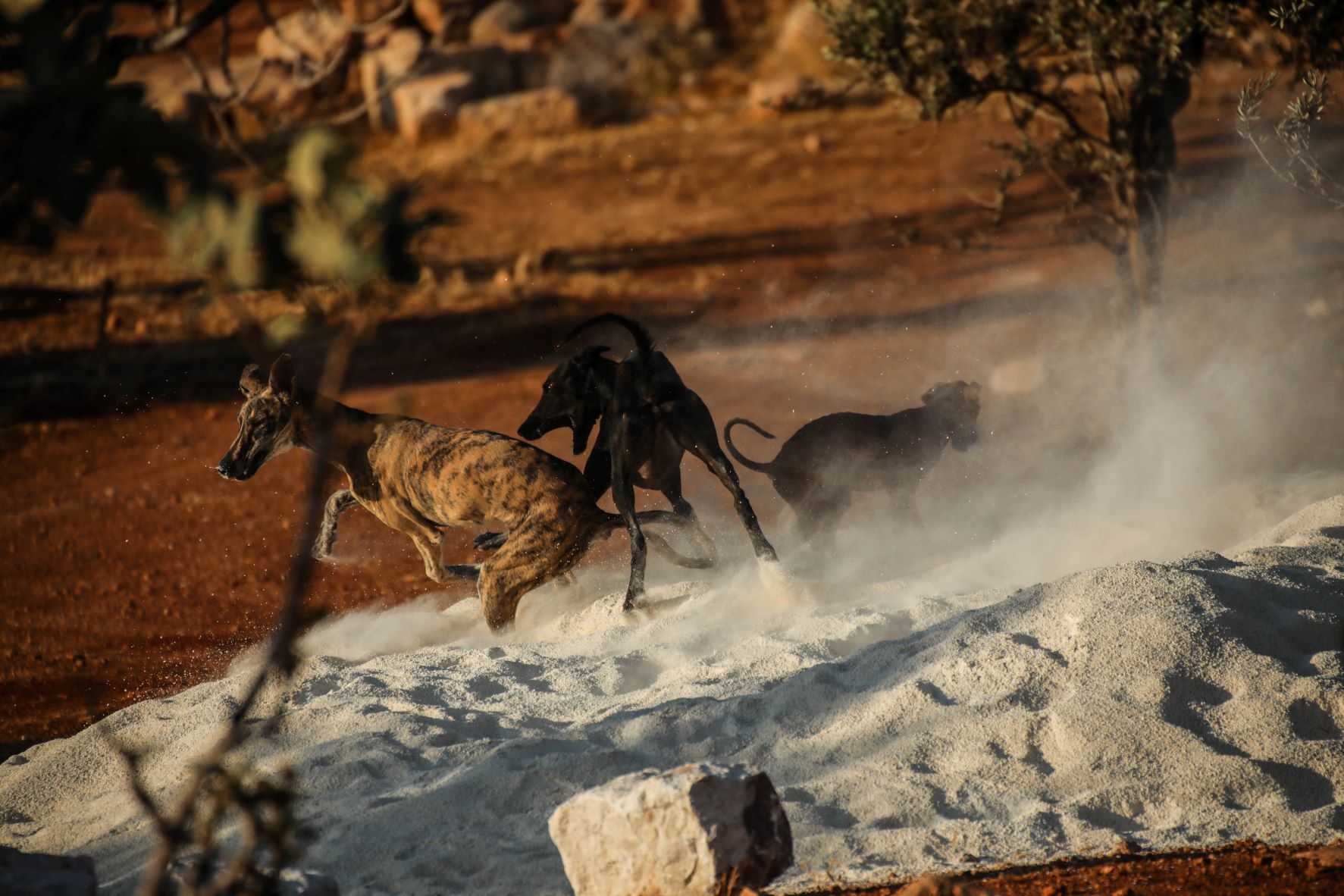
Dog owner clubs describe the Saluki as having a shy and quiet personality with a low bark and calm demeanour. Despite this they are deeply loyal to their owners and family members.
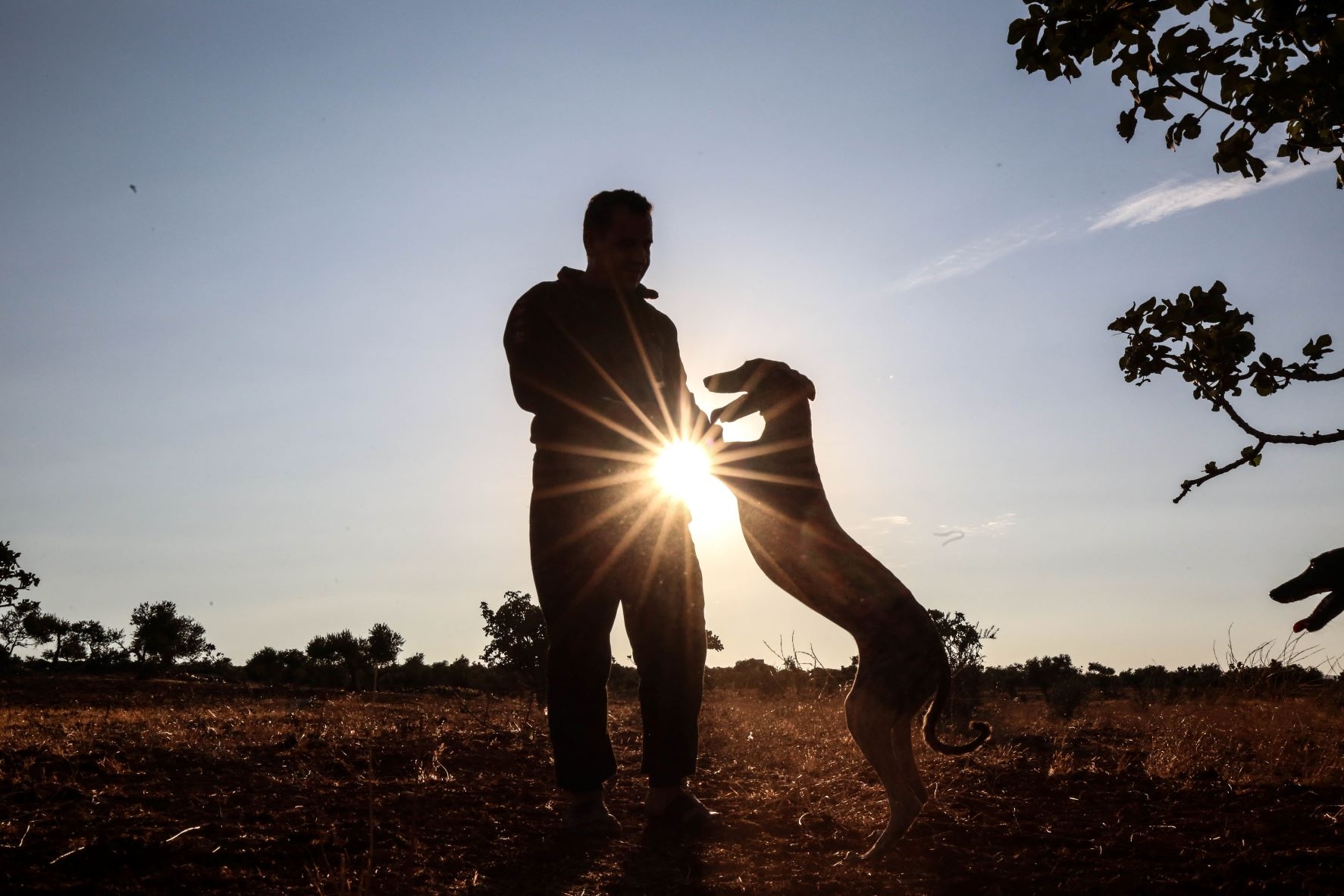
Hammadi says: "They are loyal, affectionate and very intelligent dogs. It's the only kind that hunts for you, not for itself."
This article is available in French on Middle East Eye French edition.
Middle East Eye delivers independent and unrivalled coverage and analysis of the Middle East, North Africa and beyond. To learn more about republishing this content and the associated fees, please fill out this form. More about MEE can be found here.



